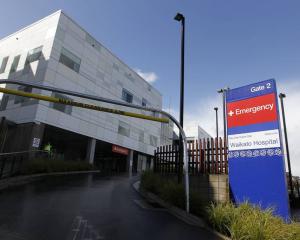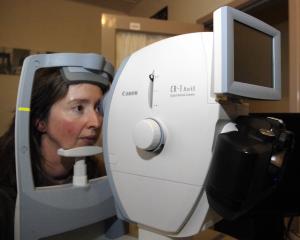
The Southern Cancer Network report makes no call on whether harm was done to the 23 audit patients found to have cancer, including five patients where the disease had spread.
Four of these patients with secondary cancers did not appear to have been seen by the colonoscopy review panel (CRP), which is supposed to vet all referrals.
The report said the harm question was not part of the scope of the audit.
It said it was apparent the patients in the audit experienced "prolonged" waits from referral to treatment.
These waits ranged from 36 days to more than two years.
The prolonged hospital delays for rectal cancer patients, which included a rectal cancer patient whose referral-treatment delay was more than two years, warranted further review, the report said.
No comment was made on the implications of delays on colon cancer patients, other than that they were "clearly prolonged".
The report only gives information on times from referral to diagnosis tor the 11 cancer patients who received colonoscopies at Dunedin Hospital.
These ranged from a month to more than six months.
Seven of the audit patients did not appear to have been considered by the CRP and these patients had the longest delays in their treatment.
This included the rectal cancer patient mentioned earlier.
The "mean" delay for this group was more than nine months.
No explanation for their not being considered is given.
Another person who was not included on the summary list had previously been declined a surveillance colonoscopy and was admitted acutely for cancer treatment.
The audit follows concerns about access to colonoscopy services at the hospital raised by some 26 general practitioners in a survey carried out by South Link Health last year.
Doctors who took part were worried that patients, some with all the accepted symptoms of bowel cancer were being denied colonoscopies and this could result in poor outcomes, including premature death, because of late diagnosis.
There were also concerns some patients considered at increased risk of bowel cancer were not receiving surveillance colonoscopies according to national guidelines.
While the audit report says its objectives were to determine if the patients received appropriate and timely access to colon-oscopies in relation to the prioritisation criteria established by the board and the national clinical priority assessment criteria, there is no analysis of how the criteria were applied to the 33 patients.
The report says the board criteria, adopted and implemented by the board in 2007, seemed to be a strategy to manage with reduced staffing and limited resources.
The criteria specifies longer target waiting times than the national criteria which "potentially elongate the patient journey".
The district health board, which had input into the audit report on two occasions, referred auditors to a Danish study which said rectal cancer patients had poorer outcomes if the time from symptom onset to treatment was greater than 60 days.
Of the seven rectal cancer patients in the audit, only one had treatment in less than 60 days from the onset of symptoms, with the others ranging from about three months to more than four years..
The prolonged hospital delays for rectal cancer patients, which included the patient whose referral-treatment delay was more than two years, warranted further review, the report said.
No comment was made on the implications of delays on colon cancer patients, but the team said the delays were "clearly prolonged".
It did note the median length of hospital waits for the audited colon cancer group was six times that in the Danish study, but also that the Otago audit sample was small and skewed.
As well as treatment delays, the report refers to an increasing number of refused colonoscopies in recent years, Otago's position as the lowest provider of publicly-funded colonoscopies in the country and confused record keeping.
It also notes the hospital service has had "chronic" unfilled vacancies of 1 to 1.3 full-time senior doctors for more than two years.











